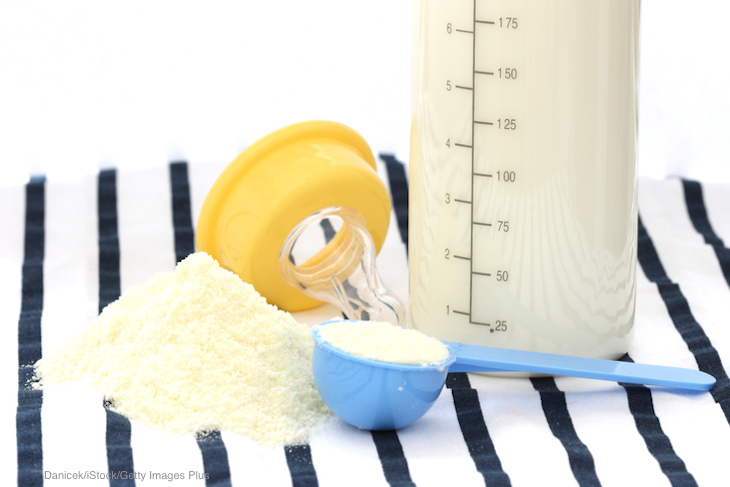The Center for Food Safety, along with the International Center for Technology Assessment, has formerly petitioned the FDA to regulate novel nanomaterials in infant formula. Jaydee Hanson, policy director at Center for Food Safety, said in a statement, “FDA has known for five years that many U.S. infant formulas contain nanochemical additives that the agency has not approved. It is time for FDA to act to make infant formula safe from these toxic additives. Europe keeps them out of infant formula—we should too.”

Nanomaterials, which are very tiny particles that have at least one dimension less than approximately 100 nanometers, can be engineered or can exist in nature. The National Institute of Environmental Health Services states, “While engineered nanomaterials provide great benefits, we know very little about the potential effects on human health and the environment. Even well-known materials, such as silver for example, may pose a hazard when engineered to nano size.”
Nanomaterials can have different health effects compared to their bulk material counterparts. And the risks of nanomaterials in infant formula are not well understood. There are some studies that show these particles have toxicity and chemical reactivity and that they may be able to penetrate biological membranes.
The European Union has raised serious concerns about nano and bulk forms of some chemicals, such as hydroxyapatite and titanium dioxide, which are both found in infant formulas in the United States. An EFSA panel recently found that there are concerns about the genotoxicity of titanium dioxide.
One study, conducted by Arizona State University, found nanomatierals in infant formula that were manufactured by four companies: Gerber, Enfamil, Well Beginnings, and Similac. The particles are used for “brightening/whitening, anti-caking, and flow-enhancing properties,” according to Center for Food Safety.
The FDA must make sure that infant formulas are safe and that they meet nutritional requirements. All infant formula manufacturers must register with the FDA and provide a notice before they can sell any of these products. Once a formula is on the market, any changes must be reported to the FDA.
The petition urges the FDA to enact new regulations on the agency’s oversight of nanomaterials. The agencies want the FDA to rigorously test these products for the presence of nanomaterials, and then label them as containing nanotechnology. They also want the FDA to declare all currently available infant formulas that contain engineered nanoparticles as adulterated and issue recalls. Finally, they do not want the the agency to use the “Generally Recognized as Safe” (GRAS) loophole for nanomaterials in infant formula.




